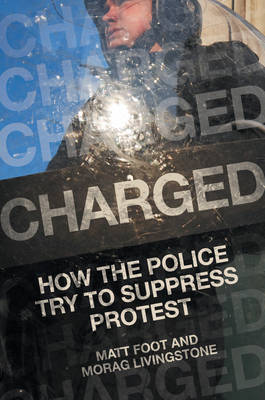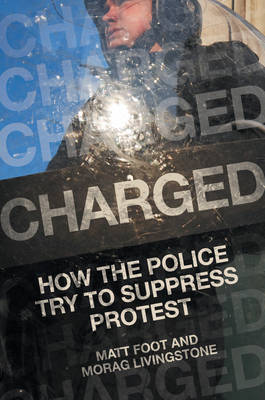
- Afhalen na 1 uur in een winkel met voorraad
- Gratis thuislevering in België vanaf € 30
- Ruim aanbod met 7 miljoen producten
- Afhalen na 1 uur in een winkel met voorraad
- Gratis thuislevering in België vanaf € 30
- Ruim aanbod met 7 miljoen producten
Zoeken
€ 28,45
+ 56 punten
Omschrijving
Who do the police protect? An investigation into 40 years of battling protest that reveals a hidden police agenda against dissent.
Charged is an essential investigation into the role of policing protest in Britain today. As the UK government tries to suppress all forms of dissent, in their pursuit of more control, how do the police manage crowds, provoke violence and even break the law? Since the 1980s under successive governments the police have been allowed to suppress protests, using aggressive tactics--from batons to horse charges to kettling. The landscape of how police deal with protest changed following criticism of the police during the 1981 Brixton riots. New military-style tactics were sanctioned by the Thatcher government, in secret. Over the next forty years those protesting against racism, unfair job losses, draconian laws, or for environmental protection were subject to brutal tactics. In the aftermath, media attention denigrates protesters while the police are praised and continue to act with impunity. Looking through these moments of conflict widens our understanding of policing public order to reveal the true character of the state. Since the 1980s successive governments, from Thatcher to Johnson, covertly plot to suppress protests, using standardised aggressive tactics, from batons to horse charges to kettling. Through undisclosed documents and eyewitness accounts the authors reveal organised police violence against miners at Orgreave, print workers at Warrington, anti poll tax campaigners, student protestors and Black Lives Matter. The voices of protesters have been undeterred.
Charged is an essential investigation into the role of policing protest in Britain today. As the UK government tries to suppress all forms of dissent, in their pursuit of more control, how do the police manage crowds, provoke violence and even break the law? Since the 1980s under successive governments the police have been allowed to suppress protests, using aggressive tactics--from batons to horse charges to kettling. The landscape of how police deal with protest changed following criticism of the police during the 1981 Brixton riots. New military-style tactics were sanctioned by the Thatcher government, in secret. Over the next forty years those protesting against racism, unfair job losses, draconian laws, or for environmental protection were subject to brutal tactics. In the aftermath, media attention denigrates protesters while the police are praised and continue to act with impunity. Looking through these moments of conflict widens our understanding of policing public order to reveal the true character of the state. Since the 1980s successive governments, from Thatcher to Johnson, covertly plot to suppress protests, using standardised aggressive tactics, from batons to horse charges to kettling. Through undisclosed documents and eyewitness accounts the authors reveal organised police violence against miners at Orgreave, print workers at Warrington, anti poll tax campaigners, student protestors and Black Lives Matter. The voices of protesters have been undeterred.
Specificaties
Betrokkenen
- Auteur(s):
- Uitgeverij:
Inhoud
- Aantal bladzijden:
- 336
- Taal:
- Engels
Eigenschappen
- Productcode (EAN):
- 9781839762499
- Verschijningsdatum:
- 24/05/2022
- Uitvoering:
- Hardcover
- Formaat:
- Genaaid
- Afmetingen:
- 142 mm x 212 mm
- Gewicht:
- 430 g

Alleen bij Standaard Boekhandel
+ 56 punten op je klantenkaart van Standaard Boekhandel
Beoordelingen
We publiceren alleen reviews die voldoen aan de voorwaarden voor reviews. Bekijk onze voorwaarden voor reviews.











